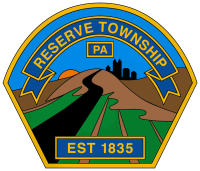When It Rains, It Drains
Storm water is water from precipitation that flows across the ground and pavement when it rains or when snow and ice melt. The water seeps into the ground or drains into storm sewers. Storm sewers are what you see at street corners or at low points on the sides of the streets. Collectively, the draining water is called storm water runoff.
Stormwater Pollutants
Storm water becomes a problem when it picks up debris, chemicals, dirt or other pollutants as it flows or when it causes flooding and erosion of stream banks. Storm water eventually flows into a stream, river or wetland. All of the pollutants storm water carries along the way empty into these waters because storm water does not get treated.
- Pet waste left on the ground can get carried away by storm water contributing harmful bacteria into our water.
- Vehicles that drip fluid (oil, antifreeze, gasoline) onto paved areas where storm water drains is also carried into our water.
- Chemicals used to grow and maintain lawns can run off into the storm drain when it rains or when we water our lawns.
- Waste from chemicals used in construction can wash into the storm drain system.
Storm Runoff Issues
Rain is an important part of natures water cycle, but there are times it can do more damage than good. Problems related to storm water runoff can include:
- Flooding caused by too much storm water flowing over paved surfaces.
- Increased spending to maintain storm drains and storm sewer systems that are clogged with excessive amounts of debris and dirt.
Prevent Storm Water Pollution
The following are some important ways you can help prevent storm water pollution:
- Properly dispose of hazardous substances such as used oil, cleaning supplies and paint. Never pour them down any part of the storm sewer system.
- Use pesticides, fertilizers and herbicides properly and efficiently to prevent excess runoff.
- Look for signs of soil and other pollutants, such as debris and chemicals leaving construction sites or tracked onto roadways by construction vehicles. Please report poorly managed construction sites to the Township Manager at 412-322-1551.
- Install innovative storm water practices on residential property such as rain barrels or rain gardens that capture storm water and keep it on site instead of letting it drain away into the storm sewer system.
- Report any discharges from storm water outfalls during dry weather, a sign that there could be a problem with the storm sewer system.
- Pick up after pets and dispose of their waste properly.
- Store materials that could pollute storm water indoors and use containers for outdoor storage that do not rust or leak to eliminate exposure of materials to storm water.
